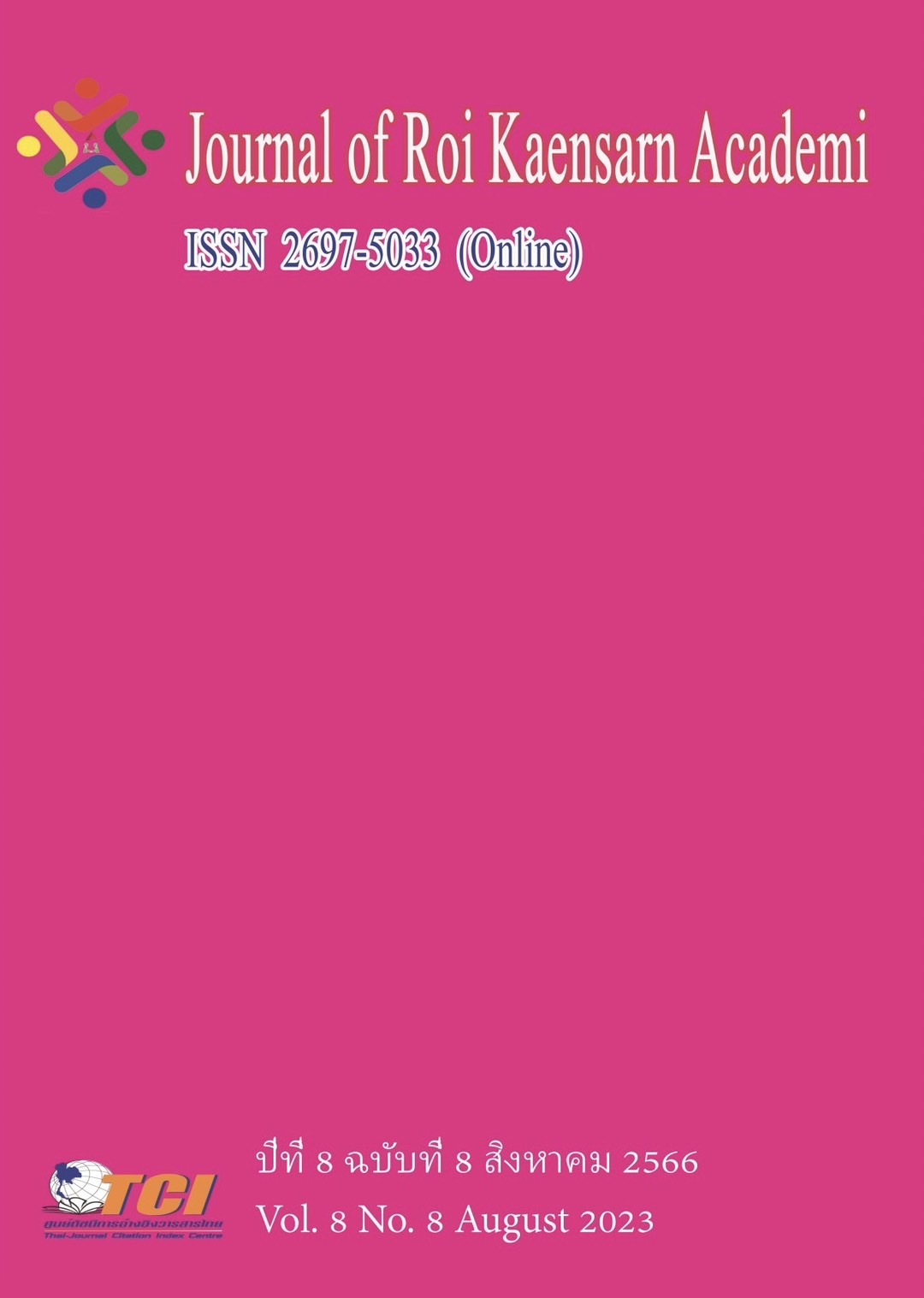Music Education Reform for Muscular Disease Prevention and Treatment
Main Article Content
บทคัดย่อ
The incidence of neuromuscular and skeletal diseases related to performance am keyboard instrument players has been high, often limiting or terminating their learning and playing careers. Injured pianists are eager to find solutions and so-called scientific methods to develop injury prevention techniques, but these methods have not been seriously studied. Based on the researcher's 5 years of full-time and part-time teaching reform practice in the Keyboard and Instrument Department of Inner Mongolia Academy of Arts, this study investigated an interdisciplinary and nontraditional piano teaching method - the Piano Performance Method of Juilliard Conservatory of Music.
This method has received considerable public praise from industry insiders, but no systematic research has been conducted to determine its efficacy in restoring and preventing neuromuscular bone diseases and recurrence, as well as its impact on technology The influence of musicality and extra muscular factors. Participants include undergraduate and graduate students, amateur pianists (enthusiasts), and organists (enthusiasts) who have studied the method for at least two semesters between 2020 and 2022. An anonymous survey was conducted am 103 learners aged 22 to 72, of whom 74 (N=74) responded (71.8%), and 26 were interviewed in depth.
The results of surveys and interviews indicate that participants believe that this method is very helpful in promoting the recovery of neuromuscular and skeletal diseases. The significance of the relationship between coding includes: the correlation between "effective" and "non injurious performance" of coding is 0.70, while the correlation between "effective" and "re performance" is 0.66. A single sample t-test of survey data also showed that this method has a positive perspective in helping to recover and prevent recurrence (p<.001). In addition, survey and interview participants have reported improvements in technology and musicality, and many have also reported improvements in their spare time lives. A single sample t-test of survey data shows that these improvements are significant at a level of 5% or higher. This study hopes that these data can serve as a starting point for the wider promotion of the Piano Performance Method of the Juilliard Conservatory of Music as a useful model for the teaching of injury prevention piano techniques for piano majors.
Article Details
เอกสารอ้างอิง
Feng, Y. (2023). The use of emotion and technique in piano performance. Drama House, (33), 44 -70.
Fu, M. (2022). An analysis of the practical application of sight-singing and ear training in piano performance. Drama House, (33), 211-220.
Jiang, C. (2022). A practical exploration of the application of musical aesthetics knowledge to piano performance. Art Review, (53), 12- 15.
Li, Y. (2022). The importance and techniques of musical expression in piano performance. Art View, (23), 198-210.
Li, B. (2022). The specific application and treatment of timbre control in piano performance. Artistic View, (23), 12-20.
Li, X. (2022). The influence of key touch technique on the tonal effect in piano performance. Drama House, (34), 92- 122.
Liang, C. (2022). Research on the art of piano performance based on aesthetic perspective. Art Tasting, (34), 224-235.
Lin, B. (2022). A study on the practical path of integrating Chinese traditional music into piano performance teaching. Arts, (20), 12-20.
Song, J. (2022). A study of piano performance techniques in the Romantic period. Art Review, (53), 111 - 125.
Song, Q. (2022). A study of piano performance teaching methods in universities in the new era. Chinese Literature and Art, (07), 12-29.
Sun, D. (2022). Analysis of key touch methods in piano performance. Drama House, (33), 111- 120.
Xiao, H. (2022). The development of artistic aesthetics in piano performance. Artistic Perspectives, (23), 12-20.
Xing, B. (2022). Exploring the construction of piano players' musical performance heart quality. Tomorrow's Style, (67), 135- 146.
Yang, J. (2023). Strategies for the integration of technicality and artistry in piano performance. Drama House, (33), 1-20.
Yang, X. (2023). The importance of analysis of piano works in piano performance. Suihua Journal of Music, (8), 33-50.
Yin, Y. (2022). On the relationship between piano performance technique and musical expression. Music World, (87), 112- 135.
Zhang, X. (2022). Research on the use and methods of sight-singing and ear training in piano performance. Chinese Literature and Art, (07), 164- 170.
Zhang, M. (2023). Grasping and expressing the style of works in piano performance: the example of classicalism and romanticism. Drama House, (33), 1- 10.
Zhao, Q. (2023). The importance of musical work analysis in piano performance. Drama House, (33), 3-20.

